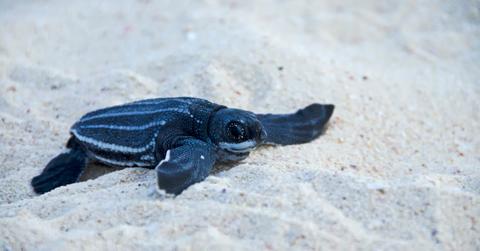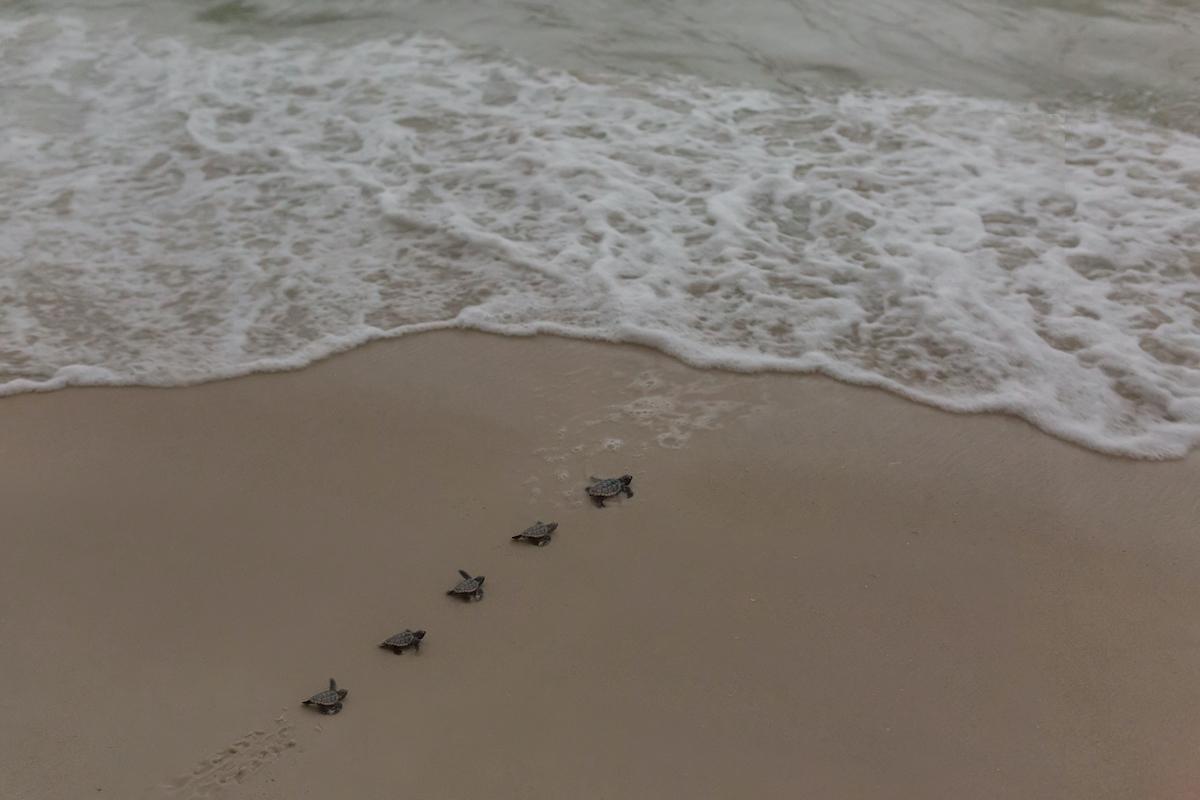Rare Turtles Nest on Thailand Beaches at Record-Breaking Rate, Due to Coronavirus Beach Closures
In Phuket, Thailand, rare leatherback sea turtles are nesting at unprecedented rates.
Updated May 4 2020, 1:31 p.m. ET

This time of year, beaches are usually flooded with people celebrating the warming weather. But due to the COVID-19 pandemic, beaches around the world are the emptiest they’ve ever been — when it comes to humans, that is. And in Phuket, Thailand, rare leatherback sea turtles have been taking advantage of the tourist-free beaches, and are nesting at unprecedented rates.
According to Reuters, local authorities have found 11 leatherback sea turtle nests on Phuket beaches since November. Kongkiat Kittiwatanawong, director of the Phuket Marine Biological Center, said this is the greatest number of leatherback sea turtle nests that Thailand's beaches have seen in 20 years.
“This is a very good sign for us because many areas for spawning have been destroyed by humans,” Kittiwatanawong told Reuters. “No such nests had been found for the previous five years. If we compare to the year before, we didn’t have this many spawn, because turtles have a high risk of getting killed by fishing gear and humans disturbing the beach.”

Over the past few months, there have been many similar instances of the coronavirus quarantines allowing wild animals to thrive in nature and the lockdowns helping air quality improve in various areas (so many that the sensationalized phenomenon has become a meme). But what’s different about this instance is that experts think it could have a positive effect on conservation in the long-term.
Kanokwan Homcha-ai, a Mai Khao Marine Turtle Foundation supervisor, explained why these turtle nests could have lasting effects in an interview with CNN.
"This may have positive impacts on the environment in marine conservation in the long term as well," Homcha-ai told CNN. "Not just sea turtles, but other marine species such as dolphins and dugong that live in the region have also increased in numbers according to government survey, such as hermit crabs and other food sources for marine animals."
In late March, it was reported that air pollution had significantly dropped in major cities across the U.S., from New York to Los Angeles. While some viewed this as a silver lining or a welcome temporary fix to air quality issues, Jill Baumgartner, an epidemiologist and McGill University professor, asserted that these fluctuations were only short-term, and not sustainable ways to improve air quality at all.
“This really shouldn’t be seen as a silver lining,” Baumgartner told The New York Times of the air quality improvements. “It’s not a sustainable way to reduce air pollution, and the long-term economic and well-being impacts of this crisis are going to be devastating for many people.”
When the lockdowns are lifted, air pollution levels will return to “normal” (aka too high), having only had short-term effects on the planet — but the new sea turtles that have been born will still be alive, a symbol of one of the few long-term effects of this pandemic, as Homcha-ai suggests.
Of course, the pandemic is overall a terrible thing for humanity, but it is teaching us some valuable lessons, many of which relate to the ways humans treat planet Earth. And maybe these lessons will inspire some long-term changes to aid in conservation. For example, perhaps Phuket's beaches will start instituting fallow seasons or years (a period of time where land is closed to allow it to recover) every few years to help facilitate the conservation of sea turtles and other marine animals.
The best way to prevent contracting or spreading coronavirus is with thorough hand washing and social distancing. If you feel you may be experiencing symptoms of coronavirus, which include persistent cough (usually dry), fever, shortness of breath, and fatigue, please call your doctor before going to get tested. For comprehensive resources and updates, visit the CDC website. If you are experiencing anxiety about the virus, seek out mental health support from your provider or visit NAMI.org.